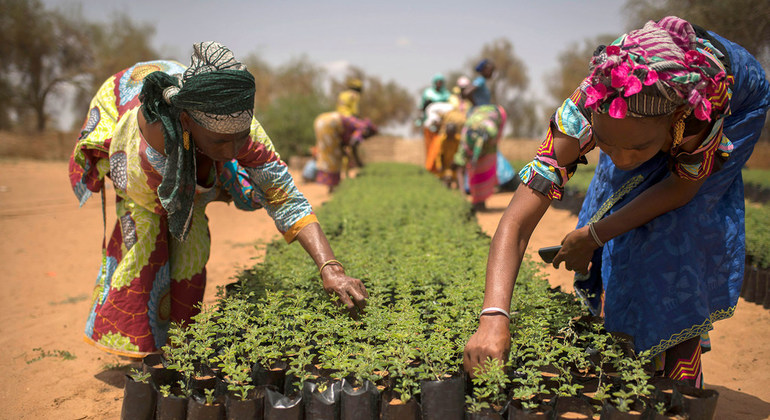Inclusion, equality resonate widely at key UN development forum
At the opening of the Ministerial Segment of the UN High-Level Political Forum (HLPF), UN Secretary-General António Guterres said that development is not sustainable if it is not fair and inclusive – warning that rising inequality hinders long-term growth.
The Secretary-General said that for development to be fully inclusive, countries must “dramatically” scale up public and private investments for the Sustainable Development Goals (SDGs); take global climate action that reduces inequality; and strengthen commitments to justice, gender equality and human rights.
General Assembly President María Fernanda Espinosa pointed out that “we have eleven years to deliver” on the 2030 Agenda, urging the HLPF over the next five days “to make it count”.
For our full coverage, click here.
UN ‘stands ready’ to help South and South-East Asia amid monsoon rains, flooding
expressed sadness “over the loss of life, displacement of people and destruction of property” caused by heavy monsoonal rains and flooding across South and South-East Asia – most notably in India, Bangladesh, Nepal and Myanmar.
According to a statement issued by a UN spokesperson, he extended his condolences and solidarity to the families of the victims, the Governments and people of the affected countries and wished those injured a speedy recovery.
The UN “stands ready to work with the authorities in the affected countries as they respond to the humanitarian needs resulting from this ongoing monsoon season”, he concluded.
Read the statement here.
UNICEF warns of higher risk to youngest children
Ahead of a key expert UN meeting to decide whether to declare the ongoing Ebola outbreak in the Democratic Republic of the Congo (DRC) an international health emergency, UN Children’s Fund UNICEF warned that the epidemic “is infecting more children” than earlier outbreaks.
To date, there have been more than 2,500 cases of infection and nearly 1,670 people have died in the DRC provinces of Ituri and North Kivu, making it the worst outbreak the country has ever faced and the second largest epidemic on record.
Meanwhile, the World Health Organization (WHO) confirmed that an emergency meeting on the outbreak will take place on Wednesday afternoon in Geneva to decide whether the situation warrants declaring an international emergency.
Small island communities combat obesity
Obesity among populations of small island developing States is a health emergency made worse by climate change, the UN Food and Agriculture Organization (FAO) said on Tuesday.
According to the agency, one-in-two adults is obese in many small island communities in Polynesia and Micronesia, while on average, obesity levels in people from small island States are 60 per cent higher than elsewhere.
Citing climate change as a key factor in degraded land and ocean resources, FAO believes that this has led to dependence on imported foods that are “ultra-high” in salt, sugar and fat – and “extremely high levels of overweight and obesity”.
Yemen’s warring sides agree Red Sea port ceasefire
The UN has announced that a deal has been reached with both parties at war over the key Red Sea port of Hudaydah in Yemen.
In a statement, the UN said that it had brought together delegations from the Government of President Abdrabuh Mansour Hadi and Houthi opponents, on board a vessel “on the high seas off Hudaydah”.
This was their first face-to-face meeting since February, the UN statement continued, adding that the belligerents “took stock” of their earlier agreements on the redeployment of forces from Hudaydah.
Saudi Kingdom, in a bid to find a political solution to the conflict.








